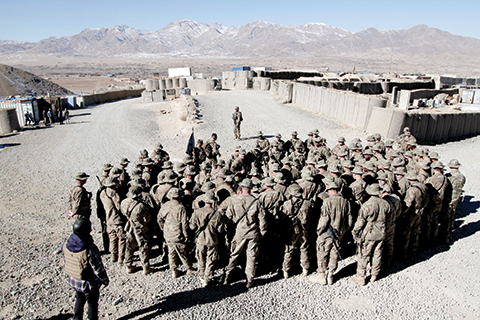KUWAIT: The State of Kuwait marked on Saturday the 61st anniversary of its constitution, which specified the ruling system, and organized relationship between legislative, executive and judicial authorities. Kuwaiti people are proud of their constitution which contributed to democracy in the Gulf nation, highlighted civil rights of citizens and their right of speech, as well as guaranteeing justice and equality.
Sheikh Abdullah Al-Salem Al-Sabah, the State of Kuwait’s 11th Amir, ratified the constitution on November 11, 1962, a defining moment in the political history of Kuwait. The Kuwaiti people remember with pride the historic democratic stages that Kuwait went through, beginning with the constitutional document in 1938 until the birth of the constitution in 1962, the “most important document” of Kuwait.
The late Sheikh Abdullah Al-Salem had expressed desire to build a solid parliamentary system based on democratic principles and see contributions of the public to the constitution. He signed a law on August 26, 1961 regarding the bylaw of the transitional period and holding elections for the Constituent Assembly with a mandate of wording the constitution. Sheikh Abdullah Al-Salem inaugurated the Constituent Assembly in January 1962 and told the members that they have a daunting task of placing foundation of the ruling system of the nation.
Members of the Assembly elected Abdullatif Mohammad Al-Ghanem as Speaker and Dr Ahmad Al-Khateeb as deputy speaker. The sixth session saw election of the Constitution Committee, consisting of speaker Al-Ghanem, late Father Amir Sheikh Saad Al-Abdullah Al-Sabah who was Interior Minister and also served as committee chairman, MP Humoud Al-Zaid Al-Khaled who was also Minister of Justice, Yaqoub Yusuf Al-Humaidhi and Saud Abdulaziz Al-Abdulrazzaq.
The committee tabled the final draft of the constitution and was unanimously approved on November 3, 1962. The Assembly then referred the draft constitution to Sheikh Abdullah Al-Salem who ratified it on November 11, 1962. The constitution consists of 183 Articles over five Chapters: the First about the State and System of Government, Second about Fundamental Constituents of Kuwait Society, Third about Public Rights and Duties, Fourth about Authorities and Fifth about General and Transitional Provisions. The first parliamentary elections were held in January 1963 and were the beginning of the real political practices under the constitution.
The democratic march in Kuwait was marred with some crises. The parliament was suspended twice in 1976 and 1986. However, the constitution was the shield against domestic and external challenges, foremost the Iraqi invasion and occupation in 1990-91. During the seven-month Iraqi occupation, Kuwaitis united behind their legitimate leadership. In April 1991, late Amir Sheikh Jaber Al-Ahmad Al-Sabah formed a new government with a mandate of reconstruction, and in October 1992, the parliamentary life resumed. The leaders of the State of Kuwait have always reaffirmed respect to the constitution. Late Amir Sheikh Sabah Al-Ahmad Al-Sabah had always reaffirmed commitment to the constitution, saying at a parliamentary session on October 26, 2010 that the constitution was the haven of democracy.
His Highness the Amir Sheikh Nawaf Al-Ahmad Al-Sabah reiterated this pledge and said the constitution protected the country from crises. His Highness the Amir, at a special parliamentary session to take constitutional oath as head of state on September 30, 2020, said “we reaffirm our commitment with our democracy and are proud that Kuwait is a state of law and institutions ... ”
His Highness the Crown Prince Sheikh Mishal Al-Ahmad Al-Jaber Al-Sabah, at a special session to take constitutional oath as Crown Prince, said he would champion the participation of the public amidst an atmosphere of tolerance and unity. —KUNA










